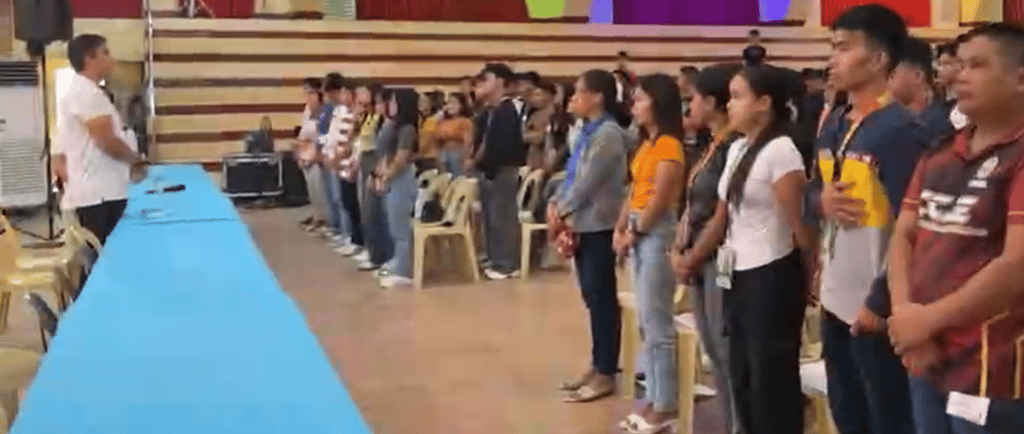Keeping the Tertiary Education Subsidy Free from Politics
A Helping Hand, Not a Campaign Tool
THE EDITORIAL CHEESE
Patrick Petinglay Villavert
11/3/20253 min read


The Tertiary Education Subsidy (TES) program, a major component of the Philippines' Universal Access to Quality Tertiary Education Act (R.A. 10931), is a vital lifeline for thousands of underprivileged students. While the distribution of these funds is a moment of public celebration for educational access, it must remain fundamentally a bureaucratic function, shielded from political grandstanding.
What is the Tertiary Education Subsidy (TES)?
The TES is a grant-in-aid program implemented by the Unified Student Financial Assistance System for Tertiary Education (UniFAST), an attached agency of the Commission on Higher Education (CHED). Its primary purpose is to support the cost of tertiary education for qualified students from low-income households, particularly those enrolled in private institutions or in State Universities and Colleges (SUCs) and Local Universities and Colleges (LUCs).
Eligibility and Application Process
TES is prioritized for students who meet their school's admission and retention requirements and have no previous undergraduate degree. The following are prioritized in the selection process:
Students who are part of households included in the Listahanan 2.0 (National Household Targeting System for Poverty Reduction) and members of the Pantawid Pamilyang Pilipino Program (4Ps).
Students enrolled in private Higher Education Institutions (HEIs) in cities or municipalities with no existing SUC or LUC campus (known as PNSL).
Remaining slots are allocated to other students in degree-granting programs, based on per capita household income.
The application is centralized and processed by UniFAST through the HEIs, which submit the necessary documents like Certificates of Enrollment/Registration and Certificates of Residency.
Financial Benefits and Payout Structure
The subsidy is designed to cover a broad range of education-related expenses:
For students in Private HEIs (PHEIs) with Free Tuition (FHE) waived: They generally receive a total of ₱60,000 per academic year (₱30,000 per semester). This includes the full/partial cost of tuition and other school fees, plus an allowance for books, supplies, and other expenses.
For students in SUCs and LUCs (Free Tuition is already provided by law): They receive a total of ₱40,000 per academic year (₱20,000 per semester) to cover non-tuition related expenses like board and lodging, transportation, and books.
Additional Benefits:
Students with Disabilities (PWDs): An additional ₱30,000 per academic year is provided for special services and assistance.
Students taking Licensure Examinations: A one-time reimbursement of up to ₱10,000 can be claimed for the cost of taking the first professional credential/qualification.
Payouts are generally managed by the HEIs, often in coordination with a government-accredited bank (like Land Bank of the Philippines) which issues cash cards for direct disbursement to the students.
The Problem with Politician Presence in Payout Events
While local government units often provide crucial logistical support (venue, security) for large-scale TES distribution events, the presence and active participation of elected officials—especially in a manner that highlights their personal involvement—is highly inappropriate and detrimental to the program's integrity.
The core issue is politicization, or the practice of "epals" (a Filipino colloquial term for attention-seeking self-promotion by politicians).
Misconstruing Public Funds as Personal Generosity: The TES is a statutory obligation funded by taxpayers' money through the national budget. It is an entitlement based on law (R.A. 10931) and poverty-based targeting, not a charitable donation from any individual politician. A politician's presence and photo-op-centered participation at the payout creates the misleading public impression that they personally sourced or gifted the money, fostering a false "debt of gratitude" among beneficiaries.
Violation of Non-Partisan Principle: The UniFAST Act and its implementing rules emphasize that all student financial assistance programs must be "insulated from political labeling or partisan affiliation." Allowing distribution events to become a stage for campaign-style speeches and banner placements undermines the merit- and need-based principle of the program.
Focus on the Student, Not the Official: The payout event should focus on the beneficiaries—their hard work, their needs, and the government’s commitment to education. The presence of a politician who takes the spotlight shifts the narrative from student achievement and state support to political advertisement.
To ensure TES funds reach their intended recipients with full dignity and without any political strings attached, the disbursement events must be strictly managed by the implementing agencies (CHED/UniFAST and the HEIs) and conducted as a routine administrative function, not a political rally. The program's value lies in its mandated support for the youth, not in the prominence of any individual elected official.
